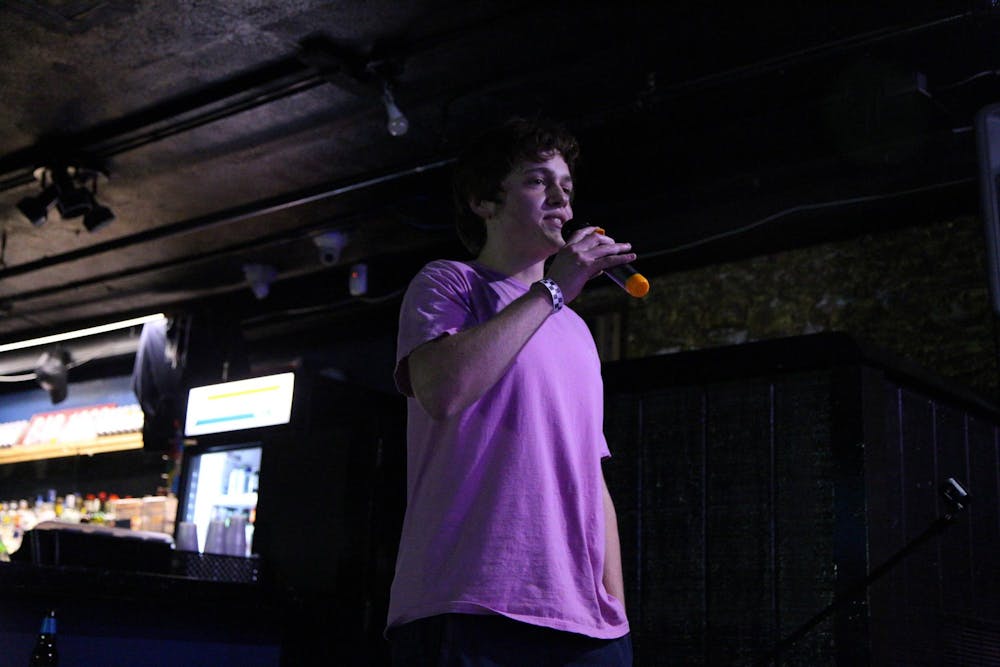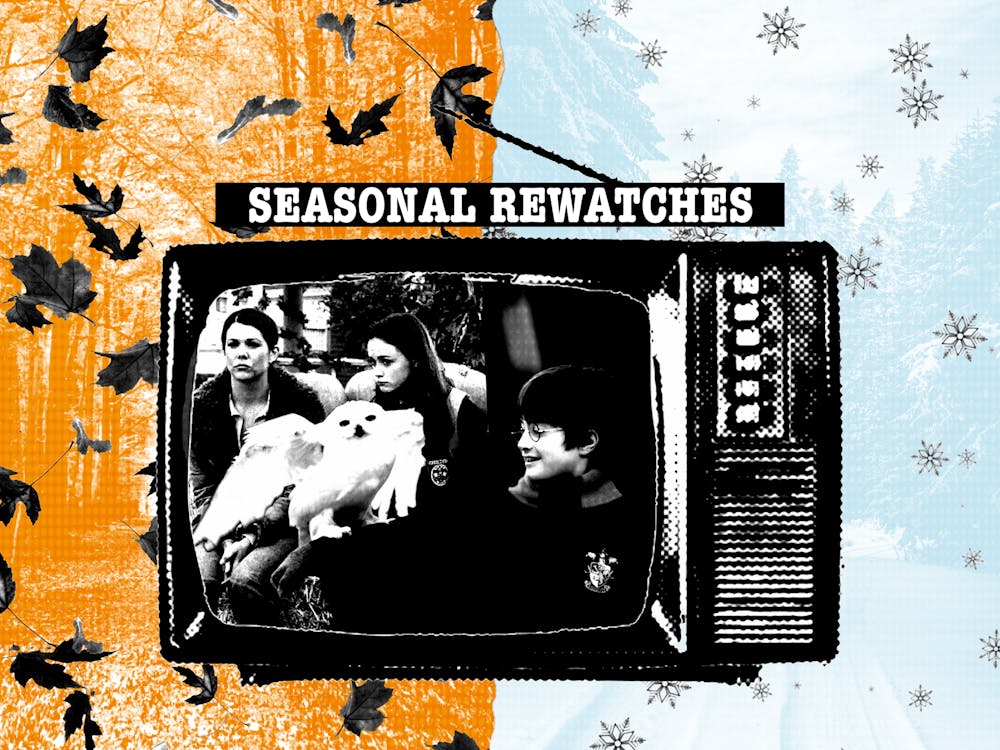For Miami University students, Wednesday nights in Oxford usually mean grabbing dinner with friends, trekking Uptown for Country Night at Brick Street Bar or getting extra sleep before class in the morning.
For members of Miami Comedic Relief, alternating Wednesday evenings mean it’s time to perform.
The comedians congregate at Bar 1868 every other week for their show. These members represent the few who had the confidence to perform and stuck with it following their first show.
“We aren’t too big of a group,” said junior biochemistry major Ben Cubberly, president of the club. “People usually, when they walk past us at Mega Fair, [are] like, ‘Stand up comedy? I don’t want anything to do with that.’ You might be shocked to find out that people aren’t readily wanting to do standup.”
Cubberly joined Miami Comedic Relief during his first year, but he wasn’t initially looking to do stand-up. He watched comedians like Nate Bargatze, but he only joined the stand-up club after his twin brother told him about a sketch comedy group he joined at the Ohio State University.
“I did speech and debate in high school, so I’d like to think that I already was pretty good at speaking to people,” Cubberly said. “The biggest challenge I had was learning how to [recover] when you do bad … I can still remember vividly the first time I bombed a set, but I’ve bombed plenty of times since then, and I don’t remember those as much.”
Learning how to get over bombed sets proved to be a useful and consistent skill. Cubberly still remembers his first time MCing, or hosting, one of the comedy shows.
His preparation gave him confidence going into the show, but it quickly fizzled when the crowd started chiming in early into his set. Someone shouted, “Oh brother, this guy stinks,” throwing Cubberly off his game and causing a loud reaction from the crowd, obscuring his jokes.
“That was a year and a half ago, [and] it still keeps me up at night,” Cubberly said. “That was embarrassing because I had some friends who I had been begging since the last semester to come to one, and they chose that one, and they never came back to any others.”
Despite the horror stories of comedians bombing, members of Miami Comedic Relief encourage everyone to try stand-up at least once.
Senior finance major Max Freese, president of the club before Cubberly, said that after four years of stand-up, he still feels the same way before each show.
“I’ve been doing it for four years now, and I’ve had the chance to perform in some of the biggest clubs in both Ohio and Maryland,” Freese said. “It doesn’t matter the amount of people in a show … It’s always the same, the nerves. And then once you’re finally up on stage and you have the microphone, you’re so in your own head, you’re not even worrying about the audience.”
Enjoy what you're reading?
Signup for our newsletter
Freese elaborated by saying the second and third performances are worse than the first. When a comedian goes up for the first time, the MC will usually explain that it’s their first performance, providing a safety net in case it doesn’t go well.
When a comedian goes up for the second time, it determines whether they’re going to stick with it.
“That’s the ultimate litmus test,” Freese said. “Most people do well their first show. The second and the third shows are the big [ones] … No one cares if it’s your second or third time doing stand-up. Your jokes have to stand on their own.”
After a good show, the comedians will meet at Skipper’s to celebrate. They’ll grab a table and a drink, talk about the show and lose track of time. For Freese, these memories remain some of his favorites.
Beyond the biweekly Bar 1868 shows, Miami Comedic Relief started performing every other Friday at Steinkeller this semester.
“I want to get those big nights because people don’t always come out on Wednesdays,” Cubberly said. “If we can get a big show on Fridays, we’ll probably get a lot more diversity in who shows up, and it probably won’t be the same people, so you can repeat more jokes.”
In some shows, every comedian pulls off ringer after ringer, keeping the crowd laughing the entire night. Other times, the crowd refuses to even crack a smile, leaving the comedians with an unrelenting audience.
No matter what, the comedians will dust themselves off, regroup and return to the stage within a few weeks.
“I was chasing the feeling of the first time I did it, the first time I did stand up,” Freese said. “The feeling of having a room of 50, 60 people, all laughing … [when] you get the entire room to burst out laughing, it is the craziest feeling ever.”




